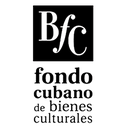Executive Secretary

XIII International Conference on Business Studies
CICE 2025
XI Conference on Business Economics
Abstract
The image of a commercial establishment directly influences the purchase decision and customer loyalty, thus becoming an intangible asset of great value for retail companies. The sector faces key challenges that affect its competitiveness: a poorly developed service culture, disconnection between academic training and practical skills, and technological lag compared to international standards. These limitations reduce the capacity for innovation and response to the demands of a globalized market, which increases the competitive gap, critical aspects for business sustainability. This constitutes the problematic situation of the present study.
The objective of the research is to determine the efficiency and effectiveness indicators of the Cuban retail trade sector, which affect its image. This research has a broad character, it begins as an exploratory study by defining the variables, components, dimensions and attributes of the corporate image in the points of sale, essential elements to analyze the characteristics of these establishments and to see the impact of the efficiency and effectiveness indicators on the sector's image, which allow measuring its performance. In addition, it adopts a descriptive approach, since it seeks to precisely detail each of these aspects. In terms of methodology, the study combines theoretical and empirical methods. Once the performance indicators have been determined, the study combines theoretical and empirical methods. Once the indicators of efficiency and effectiveness in the retail trade of goods have been determined, it is proposed to implement a quantitative study and calculate the indicators of efficiency and effectiveness in points of sale in the commercial sector in Cuba.
Resumen
La imagen de un establecimiento comercial influye de manera directa en la decisión de compra y en la fidelización del cliente, convirtiéndose así en un activo intangible de gran valor para las empresas minoristas. El sector enfrenta desafíos claves que afectan su competitividad: una cultura de servicio poco desarrollada, desconexión entre formación académica y habilidades prácticas, y rezago tecnológico frente a estándares internacionales. Estas limitaciones reducen la capacidad de innovación y respuesta ante las exigencias de un mercado globalizado, lo que aumenta la brecha competitiva, aspectos críticos para la sostenibilidad empresarial. Esta constituye la situación problemática del presente estudio.
El objetivo de la investigación es determinar los indicadores de eficiencia y eficacia del sector del comercio minorista cubano, que inciden en su imagen. Esta investigación posee un carácter amplio, se inicia como un estudio exploratorio al definir las variables, componentes, dimensiones y atributos de la imagen corporativa en los puntos de venta, elementos esenciales para analizar las características de estos establecimientos y ver el impacto de los indicadores de eficiencia y eficacia en la imagen del sector, que permiten medir su desempeño. Además, adopta un enfoque descriptivo, ya que busca detallar de manera precisa cada uno de estos aspectos. En cuanto a la metodología, el estudio combina métodos teóricos y métodos empíricos. Una vez determinados los indicadores de eficiencia y eficacia en el comercio minorista de bienes se propone implementar un estudio cuantitativo y calcular los indicadores de eficiencia y eficacia en puntos de venta de sector comercial en Cuba.
About The Speaker

MsC. Dunia González Morales

Profesora Departamento de Economía Facultad de Ciencias Económicas Universidad Central "Marta Abreu" de Las Villas (UCLV)
Discussion

 Gold
Gold
 Gold
Gold
 Gold
Gold
 Silver
Silver
 Silver
Silver